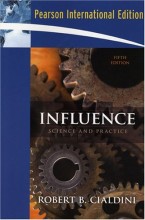Psychological and psychiatric aspects of brain disorder: Nature, assessment and implications for clinical neuropsychology
22 important questions on Psychological and psychiatric aspects of brain disorder: Nature, assessment and implications for clinical neuropsychology
What symptoms define psychosis? Name 2.
2. Hallucinating
How is a psychosis related to Lewy body disease?
How is Parkinson disease related to psychosis?
- Higher grades + faster learning
- Never study anything twice
- 100% sure, 100% understanding
Give a definition of conversion disorder
Name 8 symptoms of how conversion disorder can manifests itself
2. headaches
3. weakness
4. paralysis
5. fainting
6. abnormal gait
7. abnormal movement
8. fits
When does one call symptoms a somatization disorder?
In what neurodegenerative diseases is CD common?
Why is it important to do assessment when thinking of psychological disorder?
Name 3 structured interviews used to assess psychological symptoms
Name 5 problems NP can bump into when wanting to investigate nature and severity psychological symptoms and choosing assessment methods
2. presence dementia
3. insight
4. anosognosia
5. aphasia
Name 3 things that should be involved in clinical interview and observation for assessing neuropsychological symptoms
2. current psychiatric state
3. current and recent medication
In what cases does one use informant reports to assess psychological symptoms?
2. when assessing presence and severity of psychological problems in pt.
3. To assess non-cognitive symptoms
What is a common self-report instrument in depression and anxiety?
What is a common self-report instrument for apathy?
What is a common self-report instrument for psychosis?
For dementia: NPI or MOUSEPAD
What are the three main issues in relationship psychological disorder, cognitive function and performance in assessment?
2. Interaction problems between cognitive functioning and test performance
3. does the consequence of such changes for accurate assessment of cognitive dysfunction result from brain disorder?
What is different in apathy from for example depression or anxiety?
When do pt. suffering from apathy show deficit?
Why are assessment situations often poor in showing deficits in apathy?
What test is sensitive in assessing apathy?
Why is depression called a challenging problem?
Pharmacological treatment of anxiety impacts two domains in cognitive functioning. Which two?
The question on the page originate from the summary of the following study material:
- A unique study and practice tool
- Never study anything twice again
- Get the grades you hope for
- 100% sure, 100% understanding






























